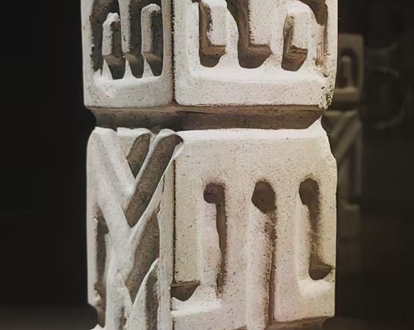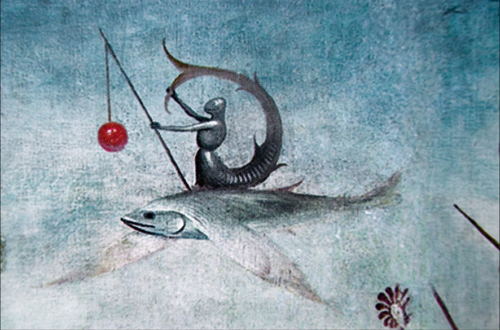Relational and Social Constructionist Consortium of Ecuador (IRYSE)
Diego Tapia Figueroa, Ph.D. and Maritza Crespo Balderrama, M.A.
When starting new projects, cycles, and dreams, we tend to reflect by evaluating what has gone before, either to learn different things or to not repeat what was not useful and at the same time recognize what was useful to us.
Questions come to us to welcome creativity, because when we generate questions from curiosity, from the desire to learn, from our new learning, we become intelligent for life.
Even more so if they are questions that make the process authentic because they move relationally as they arise from dialogue with the diverse, with the complex. The dialogic process is what opens the possibilities of building trust, hope, and connection. For this to be embodied in the relationship, it is necessary to pay attention, be genuinely present, open to understanding, and want to understand.
If we say that freedom is a process of responsible relational construction, we are proposing an affirmation as well as an invitation to commit ourselves to what could be, what does not yet exist and is constantly evolving.
This joint construction of meanings will challenge us to leave the conventions, the oppressive learning, and the mediocre truths of all forms of cruel and unjust power. It demands answers from us from a reflective pragmatic perspective, which manifests with relational ethics that, for example, rights are not begged for, they are exercised.
We work from a position of trust in which the clients have the resources (which the therapy will help to make visible, mobilizing with the joint construction of new meanings so that these strengths are verbalized, manifested, and resignified) and the capacities to carry out the transformations they need.
Aware that the therapeutic space is a place to be inhabited by the words of the consultant, not to be colonized by the supposed “expert” voice of the therapist. The important thing is that clients mobilize their own skills -not that the therapist’s skills are applauded- to open up new, meaningful, and innovative relational possibilities.
What we think, and what we feel, we construct relationally. We permit ourselves to articulate stories, with more or less meaning, for ourselves and others; from each dialogue, a relationship emerges, a possible connection, more or less creative; in this way, we unfold narratives that give new meaning to our relationships, that give meaning to our experiences and that, conversationally, weave possible different relational horizons and desirable futures.
How to be genuinely respectful of other people’s processes? Probably, achieving this expresses our authentic spirituality.
How to create and contribute to generating support networks to free oneself with joy and creativity from daily slavery? Leaving the role of victim and/or victimizer, to enjoy the possible present with others, being responsible for establishing limits of self-protection, which are the door and window to embody viable futures. From respect for ourselves and perpetual respect for others.
When we understand what is important to each of us, we become relationally responsible beings, capable of understanding what is relevant to others. A loving presence can bring serenity to relationships, one that decides to embrace uncertainty and -once again- dialogue from complexity.
By sharing intelligence, we honor relationships and can, for example, ask ourselves when we procrastinate or betray ourselves, or do not make our voices heard: What prevents us from making an affirmative response to life?
To choose to get out of blindness and see and hear differently, what is new; what we contribute to building is meaningful, because it is what we would like, when being with others, to generate common well-being.
We recover the meaning of the words by embodying them relationally, and the questions, from curiosity, respect, and acceptance of diversity, continue to be:
What do I want, how do I want to live, what is important to me, and what harvest do I expect from that «crop»?
What makes, or how does, such an intelligent person choose to live so foolishly?
Is there authentic joy in our lives?
Why do we choose to be someone’s partner?
More than continuing in a relationship, the question is: why, with what new meaning to continue, is something that has “true” meaning for me?
And why do we bring children into the world?
What can we do differently to accompany our children?
Is there joy with my partner, in shared life?
Is there genuine pleasure and joy, without hurting the other?
How do I want to be with others?
And how do I want them to be with me?
What different life do I want, from this moment, for myself?
How will I build it with those I choose as significant in this new story?
What prevents me from choosing to live with joy and freedom and respecting others from doing the same?
Do I think and feel consistent in my interrelationships, in my different relational contexts?
What can I contribute differently, with imagination and creativity, to build the type of meaningful, joyful, and free relationships that I would like to have?
Do I live, experience, and embody difference -consciously- relational ethics, do I choose it as my being with the other, in all my relational contexts?
Being able to choose to decide to trust dialogue, relationships, connections
From this relational, generative, collaborative position, which is radical tenderness and mutual care. Language is self-care, it is tenderness, and it is good treatment because it is dialogue. Do not degrade yourself in competition, violence, or waste.
The radical presence is impregnated with trust and understanding, it questions hierarchies, and it is the constant invitation to the metamorphosis of the senses. A communicational and relational expansion capable of taking the risk of articulating tentative, honest, poetic questions and answers.
We have already written, in this space, that we are responsible for weaving dialogic spaces of dignity for all participants. It is about recognizing that what is important is relational, what is built “between” and “with”. If the meaning of experiences depends on the relational context and entails a joint construction of meanings, each new conversation challenges us to co-create innovative connections with different meanings.
The dialogic process, the therapeutic process, is one in which people live the experience of feeling valued, accepted, and recognized, through deep listening, without interruptions, to generate new learning capable of questioning the prevailing status quo, in all relational contexts of the consultants.
From an attitude open to understanding what is expressed freely and openly and what is not said -to free oneself from its tyranny; be, with this free and honest dialogue, catalysts of what is to come. We need to understand the relationship, its style, needs, and possibilities.
Understand, to build connections that, with responsible words and actions, question all abusive forms of power, oppressive power, violent hierarchies, and disrespectful, exclusive, cruel, and unfair relational practices.
To think, reflect, and discern, it is necessary to choose to converse from complexity, being able to reject all forms of exploitation, oppression, misery, and injustice; It is necessary to risk asking critically about mediocrity, abjection, and stupidity of power, to be consistent by committing to our principles.
The creative process, which frees itself from the alibi of functionality useful only to the power that enthrones conventions, relations of subalternity, and conformism; developing critical thinking, which rebels against vulgarity, cynicism, prejudices, which impose the most reactionary servitude, to this society of death, especially criminal with girls, boys, women, workers. It is time to «seek the philosophy of tomorrow.»
Being able to choose to decide to trust in dialogue, in relationships, in connections, in marveling and being amazed each time as if it were the first time, taking the risk to be committed interlocutors, to generate intelligent, happy, free projects, with new dialogues that build possibilities, new futures, with trust, respect, and hope.

English translation by Bruno Tapia Naranjo.



